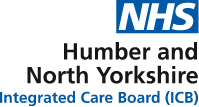Commissioning Optimisation
In 2024, we talked to stakeholders, patients and the public about the NHS through our ‘We Need To Talk’ programme.
Despite all our best efforts, we know that we are not always providing the care you expect. Without action, we know many of the issues we’re facing will only get worse and we are concerned about the impact this would have on people’s health and care.
Quite simply, demand (for our services) is outstripping supply. This is not inevitable though, especially if we act now to address the challenges head on. We need to make even bolder changes to provide safe and appropriate services for those people at most risk of harm, which we can confidently keep going with the staff and money we have available now and are predicted to have in the future.
The ICB is looking at a range of initiatives in our Commissioning Optimisation Programme to help us ensure the most effective use of our resources to direct care to those in most clinical needs and to reduce any harm as far as possible.
Over the next few months, the ICB will be engaging with patients who may be affected by some of our changes as well as our other partners to make sure we understand the impact of our proposed changes and to better inform our decision making.
Case(s) for change
We are reviewing our commissioning policies to ensure everyone living in our area has access to the same healthcare services and we are making the best use of limited NHS resources. For clarity, our Humber and North Yorkshire ICB area consists of the following 6 Places:
- North Yorkshire
- York
- East Riding of Yorkshire
- Hull
- North Lincolnshire
- North East Lincolnshire
The policies currently under review are as follows:
Oral Nutritional Supplements (ONS)
We want to transform the way we support the most undernourished people in our communities, improving their health outcomes and helping them to enjoy real food packed with nutrition and taste.
Currently, very underweight people are often prescribed Oral Nutritional Supplements (ONS). ONS is a specially formulated product designed to provide essential nutrients—such as energy (calories), protein, vitamins, and minerals—to individuals who are unable to meet their nutritional needs through regular food intake alone . There is variation across Humber and North Yorkshire on how these supplements are prescribed.
We want to work with our practices, dietitians, patients and carers/care homes to develop a Food Based Policy that identifies patients who will benefit from this approach and encourage them to move from ONS to nutrition packed real food as soon as they can. Adoption of a Food Based approach is supported by a clinical evidence base linked to a reduction in malnutrition risk
ONS is bulky and difficult to store with local care homes providing anecdotal evidence of large amounts going out of date before it can be used and being thrown away. It is costly to health and care services with HNY spending £9.5m per annum on ONS. Making this change should improve care for malnourished people and protect the use of limited NHS resources.
Renal Dialysis Transport
Most people who need dialysis treatment go to appointments three times a week, often for the rest of their lives—unless they receive a kidney transplant. That means getting to and from those appointments smoothly and reliably is really important, not just for comfort but because it can affect their health and treatment.
At the moment, all dialysis patients can use non-emergency patient transport to get to their appointments. But for some, other options might work better—like getting a lift from a friend or family member, taking public transport, or driving themselves.
In Humber and North Yorkshire, around 650 people regularly travel for dialysis. About a third currently use patient transport services. To give people more choice and flexibility, we’re thinking about introducing a new voluntary scheme. If a patient were to choose to make their own way to dialysis, they would be able to claim back 45p per mile to help with travel costs. We will shortly be launching a survey to help us understand if this scheme would work in Humber and North Yorkshire. We will be communicating the outcome of this as soon as possible once a decision has been taken after considering the survey results.
Eye Care
More people are needing eye care, and much of it is still delivered in hospital. But some parts of this care—especially after surgery—can safely happen in the community, making it easier and more convenient for patients.
We’re working with local eye surgery providers and high street opticians to increase the opportunity for post operative cataract care for our patients to be provided at a nearby optician instead of people having to return to hospital for their follow up care.
This will help bring care closer to home and give people more choice in where they’re seen.
Pathology
Pathology services are the labs behind many medical tests—like blood samples—that help doctors diagnose illnesses. Demand for these tests is growing fast, so we’re making sure our services are ready to keep up and support quicker diagnoses.
Patients won’t see any change to how they have their tests done. But behind the scenes, we’re working with GPs and lab teams to make things run more smoothly – making sure every patient gets the right test first time.

